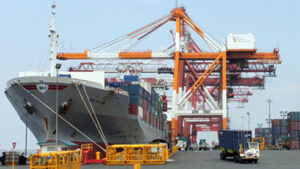THE National Government’s (NG) budget deficit is expected to widen to 6% of economic output this year as escalating trade tensions weigh on fiscal consolidation, Fitch Solutions unit BMI said.
“We maintain our Philippine fiscal deficit forecast at 6% in 2025 as a more challenging external environment will challenge fiscal consolidation efforts,” it said in a report.
“The economy will need fiscal support to offset global headwinds, but policymakers will have very limited room to maneuver given already high public debt levels.”
BMI’s forecast is higher than the 5.5% deficit ceiling set by the Development Budget Coordination Committee for this year.
“This signals a clear slowdown in fiscal consolidation efforts and reinforces our view that the government faces growing constraints in reducing its budget shortfall over the medium term,” BMI said.
In the first six months, the NG budget deficit widened 24.69% to P765.5 billion.
The budget gap remained relatively within target as it was 0.63% above the projected P760.7 billion for the first half.
The government is hoping to bring the deficit down to 4.3% of GDP by 2028.
However, BMI said “escalating US trade protectionism” remains a key risk to this outlook.
In late July, US President Donald J. Trump imposed a 19% duty on many goods from five members of the Association of Southeast Asian Nations (ASEAN) — the Philippines, Cambodia, Malaysia, Thailand and Indonesia, which took effect Aug. 7.
“If fully implemented, this would further dampen external demand and add to existing structural weaknesses. In turn, this increases pressure on the government to provide economic support.”
BMI estimates indicate that government spending would need to increase by around 1 percentage point to meet the 6% medium-term growth target.
However, this would be “fiscally unfeasible.”
“The Philippines’ public finances remain fragile, with the debt-to-GDP ratio having risen to around 60% from the pre-pandemic level of 40%. This places the country among the regional laggards in fiscal recovery,” it said.
The NG’s outstanding debt as a share of GDP rose to 63.1% at the end of June, the highest since 2005.
This was also higher than the first quarter’s 62% and the year-earlier 60.9%. It is also above the 60% debt-to-GDP threshold considered by multilateral lenders to be manageable for developing economies.
“Elevated borrowing costs and a narrow revenue base further limit Manila’s ability to deliver large-scale fiscal support without compromising debt sustainability,” it added.
On the other hand, BMI noted that the impact of the tariffs may be “less severe than feared.”
“The full impact of rising trade fragmentation — driven by geopolitical tensions and supply chain realignment — remains difficult to quantify.”
“Furthermore, policymakers are unlikely to rely solely on fiscal spending. Instead, we expect a more balanced policy response that includes monetary easing, targeted subsidies and efforts to diversify trade partners, particularly within ASEAN and the Indo-Pacific region.”
BMI said that the Philippines must either “accept structurally slower GDP growth or prolong the fiscal adjustment timeline.”
“With limited fiscal headroom and rising external risks, the government’s ability to strike a sustainable balance will be tested in the years ahead.” — Luisa Maria Jacinta C. Jocson

